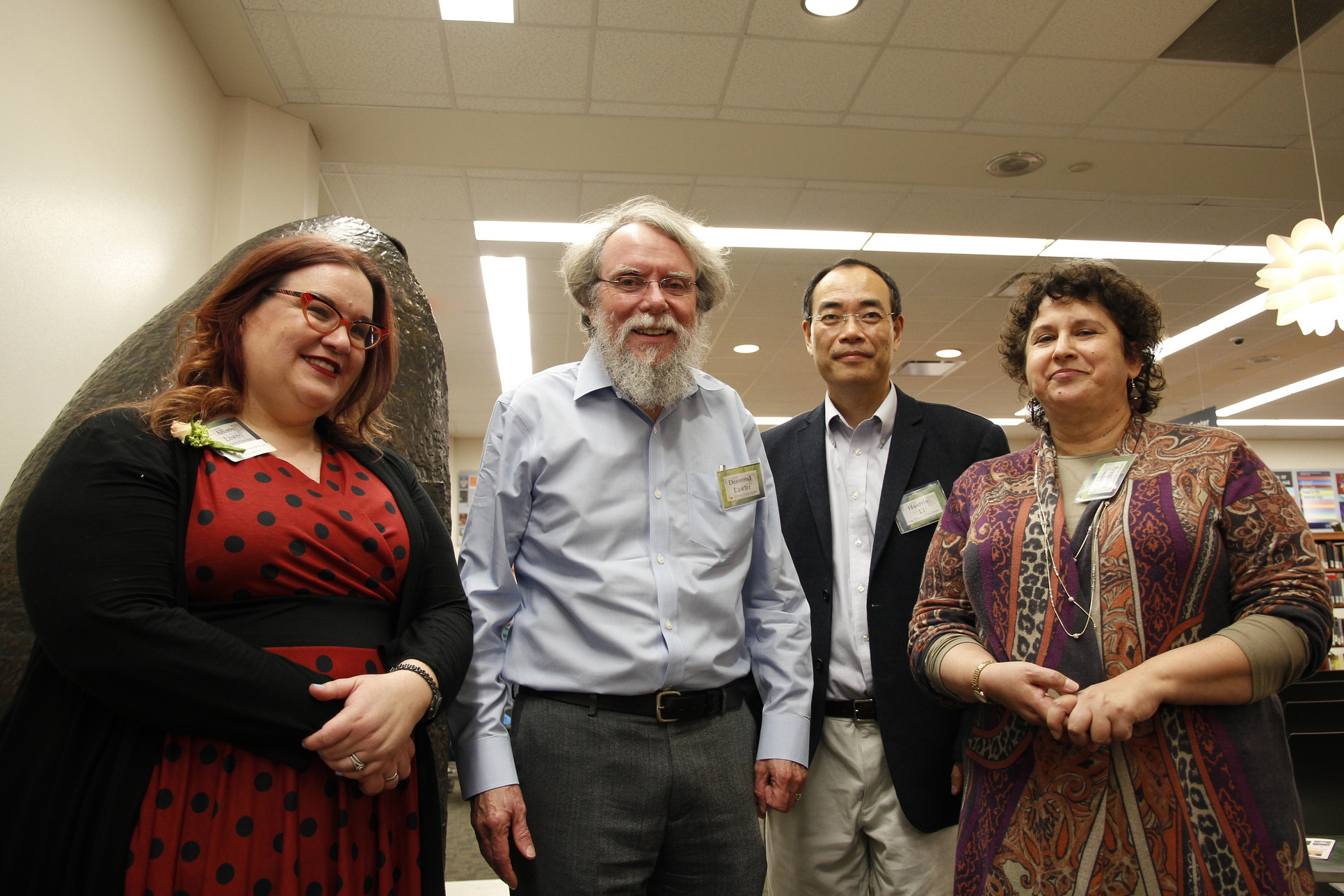
Doing research in a library can be an adventure in serendipitous discovery. For Dr. Denise Spellberg, Professor of History at the University of Texas at Austin, an unexpected search result was the impetus for a research project that resulted in her acclaimed book, Thomas Jefferson’s Qur’an: Islam and the Founders.
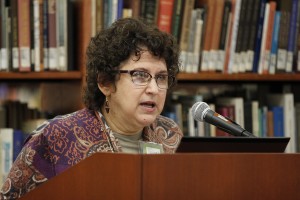
Dr. Spellberg shared this recollection—along with other fascinating insights from her research—at the Hamilton Book Awards Author Showcase and Reception, which was held at the Perry-Castañeda Library last Friday. Dr. Spellberg’s book was the 2014 grand-prize winner of the Robert W. Hamilton Book Award.
Dr. Spellberg was joined by three of the runner-up prize-winners, whose work was also honored at the 2014 award ceremony: Dr. Desmond Lawler of the Department of Civil, Architectural and Environmental Engineering (for Water Quality Engineering: Physical/Chemical Treatment Processes, which he co-authored with Mark Benjamin); Dr. Huaiyin Li of the Departments of History and Asian Studies (for Reinventing Modern China: Imagination and Authenticity in Chinese Historical Writing); and Ms. Allison Lowery, from the Texas Performing Arts Center and the Department of Theatre and Dance (for Historical Wig Styling: Volumes 1 and 2).
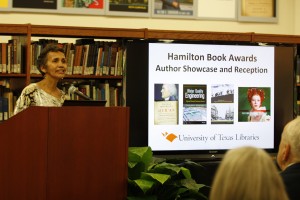
With presentations nearly as diverse as the PCL’s collection, each faculty author gave the audience an introduction to the themes and motivations that define and drive their research. Both Dr. Lawler and Ms. Lowery spoke of their passion—for clean water and the craft of wig creation, respectively—while Dr. Li described how his experiences in China and the United States allowed him to analyze modern Chinese historical writing. Dr. Spellberg recounted how the discovery of playbill from a 1782 performance of Voltaire’s Mahomet in Baltimore led her to research the role of Islam in early American history.
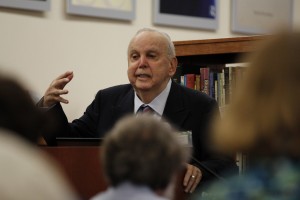
The University Co-op has sponsored the Hamilton Book Awards since 1997. Winners are determined by a multidisciplinary committee appointed by the Vice President for Research at UT Austin, and the prize is awarded each October. The Hamilton Book Awards Author Showcase and Reception is an extension of the partnership effort by the Co-op and University of Texas Libraries to foster and promote faculty research on campus.
This well-received inaugural Showcase and Reception event was planned by School of Information graduate student and Ask a Librarian intern Katherine Kapsidelis, who graduates this May.





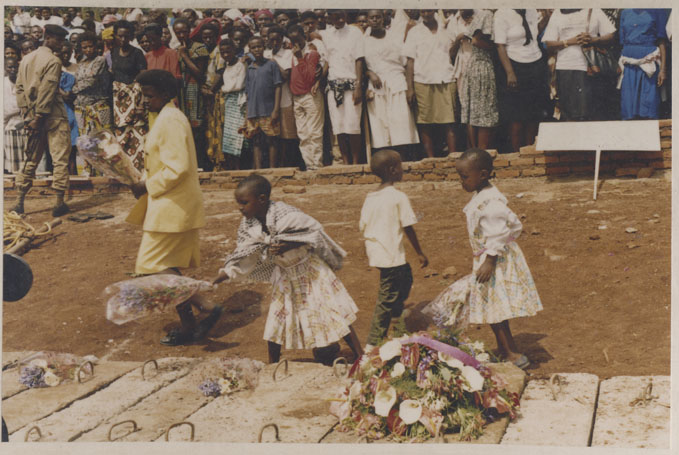

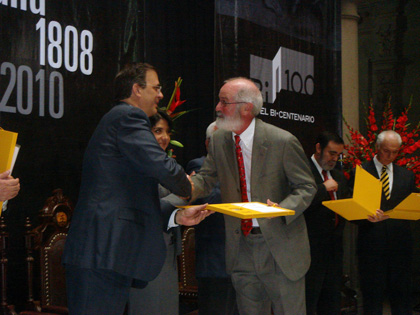
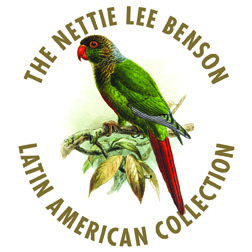 The Benson Latin American Collection
The Benson Latin American Collection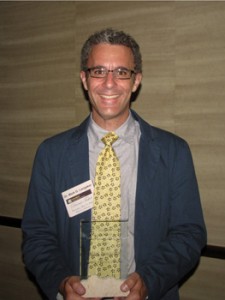
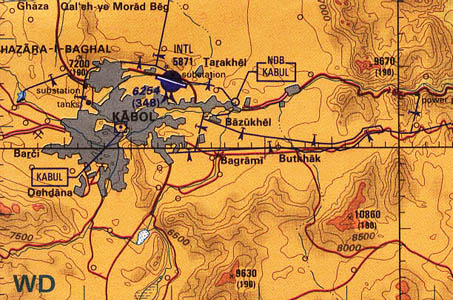 The Perry-Castañeda Library Map Collection gets a lot of use.
The Perry-Castañeda Library Map Collection gets a lot of use.